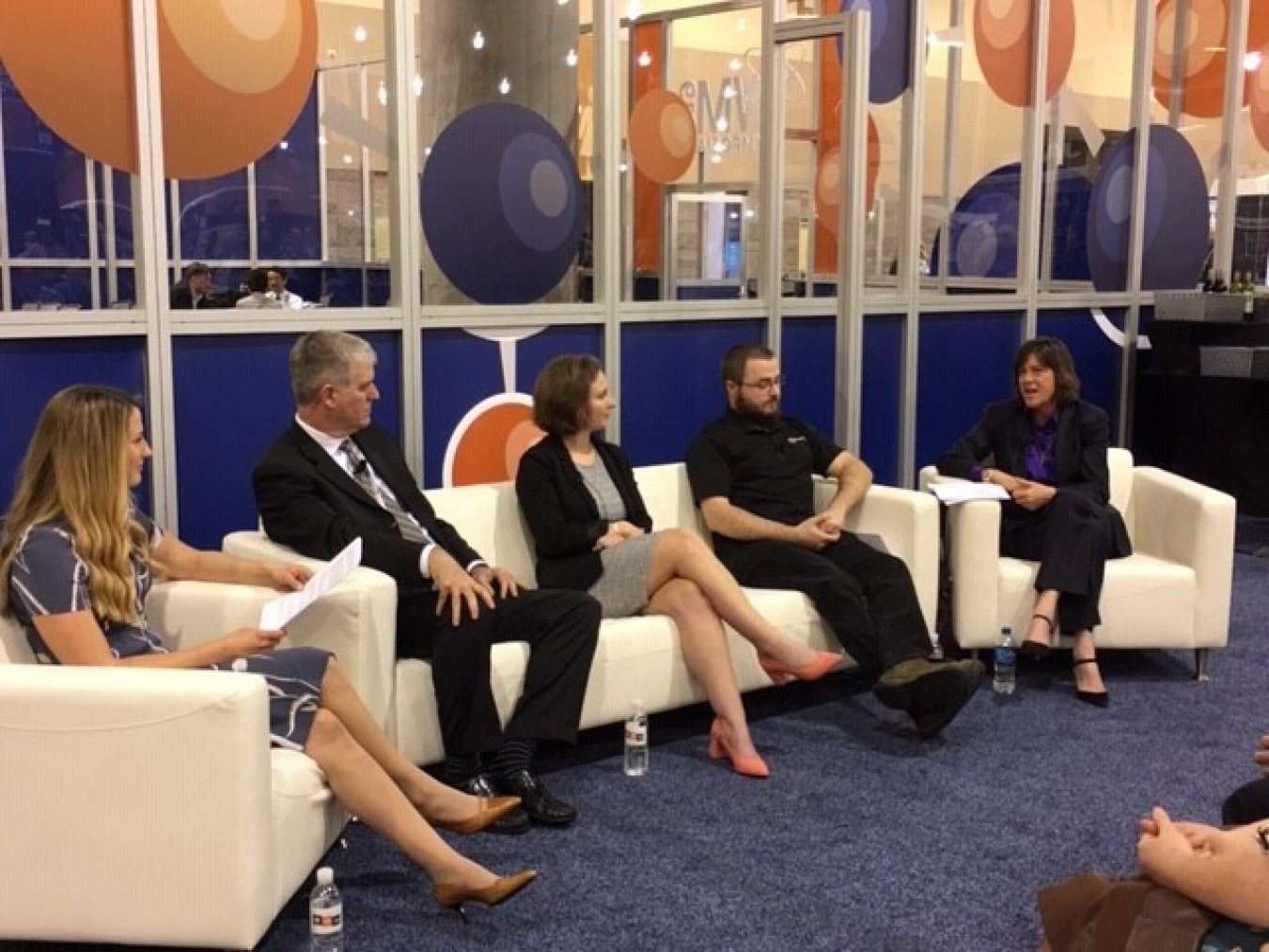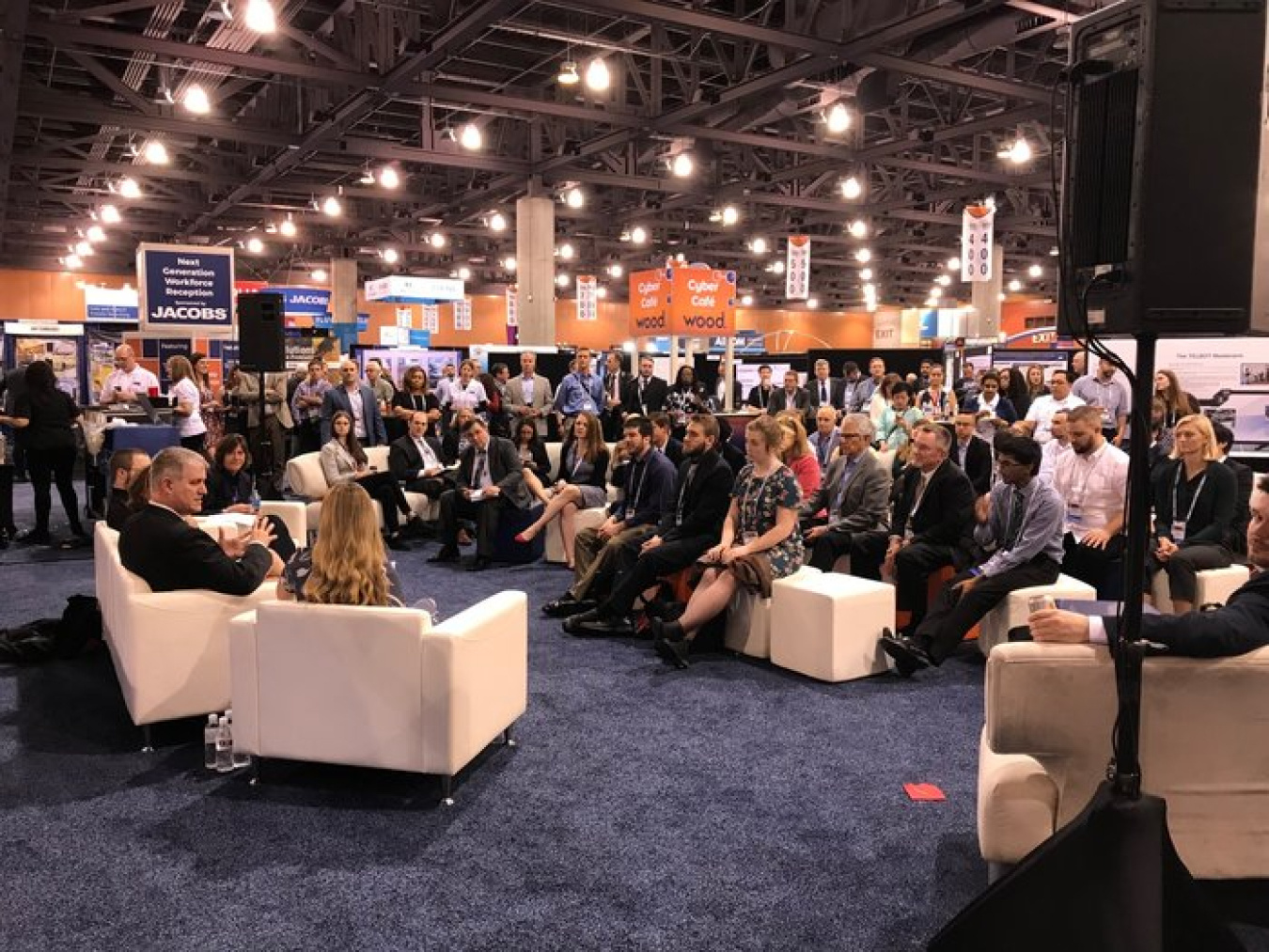The waste management industry faces a big challenge in becoming “Millennial-friendly,” as it grapples how to attract and keep its next generation.
Office of Environmental Management
March 12, 2019
PHOENIX – The waste management industry faces a big challenge in becoming “Millennial-friendly,” as it grapples with how to attract and keep its next generation of cleanup professionals, according to a panel at the 2019 Waste Management Symposia.
Compared to the Baby Boomers, the way millennials communicate, buy things, and find out what’s going on around the world has changed, and so has how they work, according to Katie Warner, Jacobs North American Nuclear Stakeholder Interface Manager.
The waste cleanup industry must “figure out how to become a Millennial friendly industry,” Warner said. “Whether we like it or not, now is here.”
EM Assistant Secretary Anne White said she is sold on the value of early career professionals. She said EM is reinvigorating internship programs and the organization plans to step up even further in giving early career workers and young professionals meaningful voices.
“It’s a lot of times young people who drive innovation, who drive change, and who have new ways of looking at things,” White said. “That’s super-important in our industry because a lot of the technology has been developed, and now it’s about being more clever in how we deploy it.”
“Innovation doesn’t always have to be about technology,” she said. “Sometimes it can be how you approach a problem, how you think about it, how you bring people together."
However, attracting new blood may be easier said than done. The established nuclear industry may find itself at a disadvantage to Silicon Valley.

Troy Pfaffle, a student at Washington State University Tri-Cities, said the industry is in a tough competition for millennials with the tech sector, “an industry created by millennials, by the younger generations for the younger generations.”
“That’s where they want to go,” Pflaffle said. “That’s where all their friends are going.”
In many cases, young professionals have no idea about the opportunities that may exist in waste management, Pfaffle said, a situation made worse by a lack of mentorships in the industry.
“Younger people are not being embraced,” he said.
Grace Snell, a young professional and Project Manager for Canadian Nuclear Laboratories, suggested the waste management industry emphasize its environmental responsibilities, as a way to attract environmentally conscious young people.
“They can get on board with the fact they’re applying for jobs to do environmentally friendly research, really cool things that are going on, decommissioning and sensible waste management,” Snell said.
Terry Hagen, Chief Operating Officer of Jacobs, said his company has embraced workforce change. Companies need to be willing to take more risk on younger workers, even though it may seem counterintuitive, he said.
“In the nuclear industry we work very hard to identify risk and mitigate it, to largely avoid it,” he said. “What I’m talking about here, though, is taking risks in new ideas and people, to put younger people in positions of real leadership.”
“One of the real enemies of innovation is a tendency to go with what you are familiar with, what you are comfortable with, and that to me is an absolute death knell to real engagement with the workforce as a whole and especially to inspiring and engaging younger professionals.”
Hagen said Jacobs executives make sure to include team members under the age of 40 when they form teams to solve problems facing the company. This is “driving the point of ensuring we have a spectrum of perspective.” Hagen said. “The best source of innovation for this company, this industry, is going to continue to be people who are not burdened by longstanding paradigms.”

